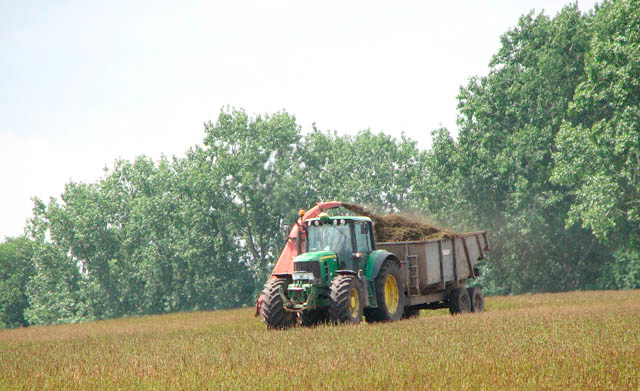
The Institution of Agricultural Engineers 2014 Conference, to be held on Wednesday 21st May at Cranfield University, is about exploring how engineering can facilitate a step-change in agricultural productivity, by enabling the adoption of entirely new agricultural systems.
Satisfying increased demand for food and biofuels is crucial for human security. The objective of 'sustainable intensifaction' - more output with less resources - is technically very challenging. However new engineering and scientific advances offer unparalleled opportunities for creativity.
Delegates will be asked to explore cutting edge developments in ecological engineering and their potential application to agriculture, imagine radical possibilities for more productive agriculture, highlight where innovative engineering may enable a step change in agricultural productivity and establish an agenda for follow-up workshops and change.
The convenor Professor Mark Kibblewhite, who becomes IAgrE President at the time of the Conference said: “We have arrived at a crucial, challenging and creative point for agriculture. Satisfying increased demand for food and biofuels is essential for human security. The objective of ‘sustainable intensification’ – more output with less resources – is technically very challenging. New engineering and scientific advances offer unparalleled opportunities for creativity. This Conference will explore radical options, in which machines are developed to enable entirely new and more productive agricultural systems.”
Speakers will include Professor Karl Ritz of Cranfield University and Professor Tim Benton of the University of Leeds who is the ‘Champion’ for the UK’s Global Food Security programme. They will talk about exploiting the ecological potential and what are the options and constraints.
Professor Peter Gregory, East Mailing Research, will talk about pathfinder developments in agricultural science and defining the engineering challenges will be Dr Dionysis Bochtis of Aarhus University, Denmark, Dr James Taylor of Lancaster University and Professor Eldert van Henten from Wageningen University.
